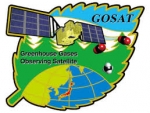Displaying items by tag: Ibuki satellite
GOSAT / IBUKI
The Greenhouse Gases Observing Satellite (GOSAT), also known as Ibuki, is the world's first spacecraft to measure the concentrations of carbon dioxide and methane, the two major greenhouse gases, from space (Figure 1). The spacecraft was launched successfully on January 23, 2009, and has been operating properly since then (as of March 2014).
Through analyzing the GOSAT observational data, scientists will be able to ascertain the global distribution of carbon dioxide (CO2) and methane (CH4), and how the sources and sinks of these gases vary with seasons, years, and locations. These new findings will enhance scientific understanding on the causes of global warming. Also, they will serve as fundamental information for improving climate change prediction and establishing sound plans for mitigating global warming.
The GOSAT Project is a joint effort of the Ministry of the Environment (MOE), the National Institute for Environmental Studies (NIES), and the Japan Aerospace Exploration Agency (JAXA).

